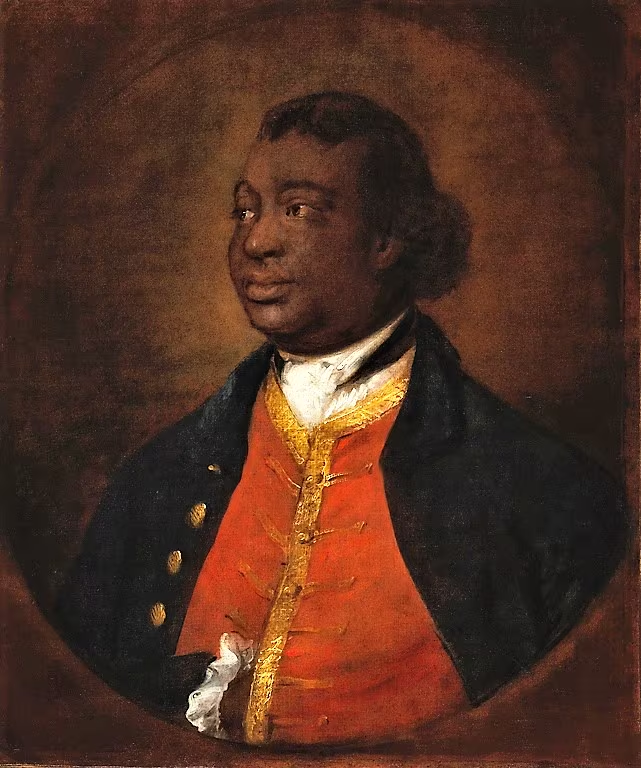In the general election of 1774, Lord North was reelected with a large majority in a fairly unremarkable election, save for one thing: it was the first time that someone of African descent had cast a vote in Britain. That man was Ignatius Sancho.

Born in 1729, Sancho was taken as a slave to London aged two where he was forced to work for three sisters who lived in Greenwich. The story might have ended there, but for a chance encounter with John Montagu, 2nd Duke of Montagu, who took an interest in Sancho and encouraged his education. Following the duke’s death, Sancho ran away from the three sisters and took refuge with the Montagus, becoming butler to John’s widow Mary and then valet to their son, George.
With the support of the Montagus, Sancho left the household in 1774 and opened a grocer’s in Mayfair. The shop allowed him to continue his education, and he became acquainted with the painter Thomas Gainsborough, the actor David Garrick, and other famous figures of 18th-century London. It was his ownership of the shop that allowed him, as a male property-owner and head of a household, to vote.
By this time he’d become not just a curiosity – he writes in a letter of being stared at and abused by Londoners – but a man of letters, a composer, and a writer who corresponded with the leading intellectuals of the day. He became a powerful voice in the movement for the abolition of slavery, as a thoughtful writer, persuasive orator, and a symbol of the humanity of Africans. His death in 1780 prompted another first: Sancho became the first black person to be the subject of an obituary in a British newspaper.